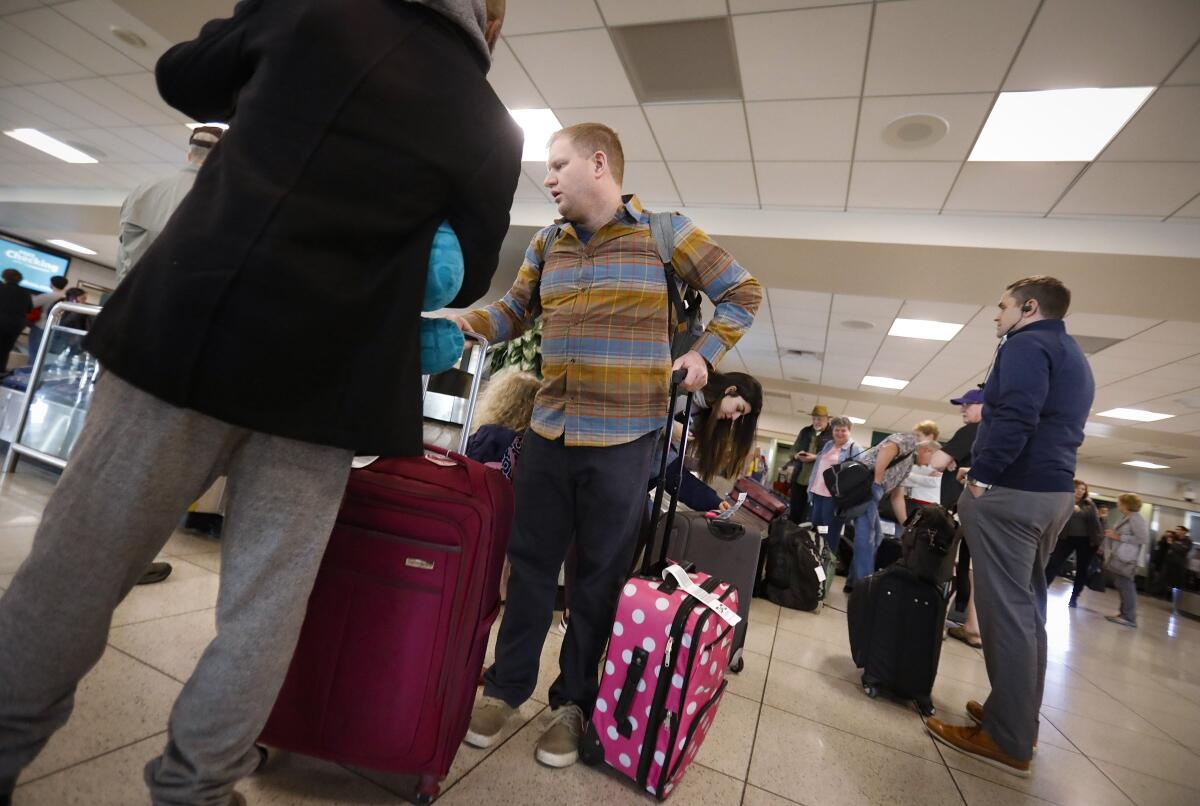Editorial: TSA screeners shouldn’t be able to harass passengers and get away with it

- Share via
In the post-9/11 universe, airline passengers have no choice but to subject themselves and their belongings to screening by agents of the Transportation Security Administration. Sometimes that process is intrusive; sometimes it’s even worse than that. It is vital that travelers who are manhandled or harassed by screeners be allowed to seek damages for their mistreatment in a lawsuit.
That would be possible under a welcome decision handed down last week by a federal appeals court in Philadelphia. Reversing a three-judge panel, the U.S. 3rd Circuit Court of Appeals ruled 9-4 that Nadine Pellegrino could pursue a lawsuit claiming that TSA officers who searched her luggage at the Philadelphia airport in 2006 had abused their authority.
Pellegrino says that, during a screening, officers spilled the contents of several containers in her baggage and were so rough in handling her belongings that her jewelry and eyeglasses were damaged. After she told the officers that she would report them to a supervisor, two officers claimed she struck them. She denies having done so.
As a result of the TSA officers’ allegations, she was arrested and charged by the district attorney with 10 crimes, including aggravated assault, possession of an instrument of a crime (her luggage), and making terroristic threats. All the charges were eventually dropped or dismissed, and Pellegrino sued the TSA and individual officers alleging, among other things, property damage, false arrest, false imprisonment and malicious prosecution.
Although the federal government generally is immune to lawsuits, a law called the Federal Tort Claims Act allows lawsuits for wrongs committed by “investigative or law enforcement officers.” But a three-judge panel held that TSA officers weren’t covered by that exception because it was designed to apply only to “criminal law enforcement officers.”
The full 3rd Circuit persuasively rejected that argument. Writing for the majority, Judge Thomas L. Ambro held that TSA agents are in fact officers of the United States. And he rejected the idea that allowing lawsuits against TSA agents would open the door to litigation against federal employees who conduct “administrative” searches of products or premises for health and safety violations. Unlike those searches, he said, searches by TSA officers “often involve invasive examinations of the physical person.”
“Without recourse under [the Federal Tort Claims] Act, plaintiffs like Pellegrino will have no remedy when [Transportation Security Administration officers] assault them, wrongfully detain them, or even fabricate criminal charges against them,” the judge wrote.
Ambro acknowledged that the overwhelming majority of TSA officers perform their jobs professionally “despite far more grumbling than appreciation.” But those who do abuse their authority must be held accountable. Civil suits for damages can provide justice for victims of misconduct and also act as a deterrent. If, as seems likely, the Justice Department appeals this sensible decision, the Supreme Court should refuse to reverse it.
More to Read
A cure for the common opinion
Get thought-provoking perspectives with our weekly newsletter.
You may occasionally receive promotional content from the Los Angeles Times.










